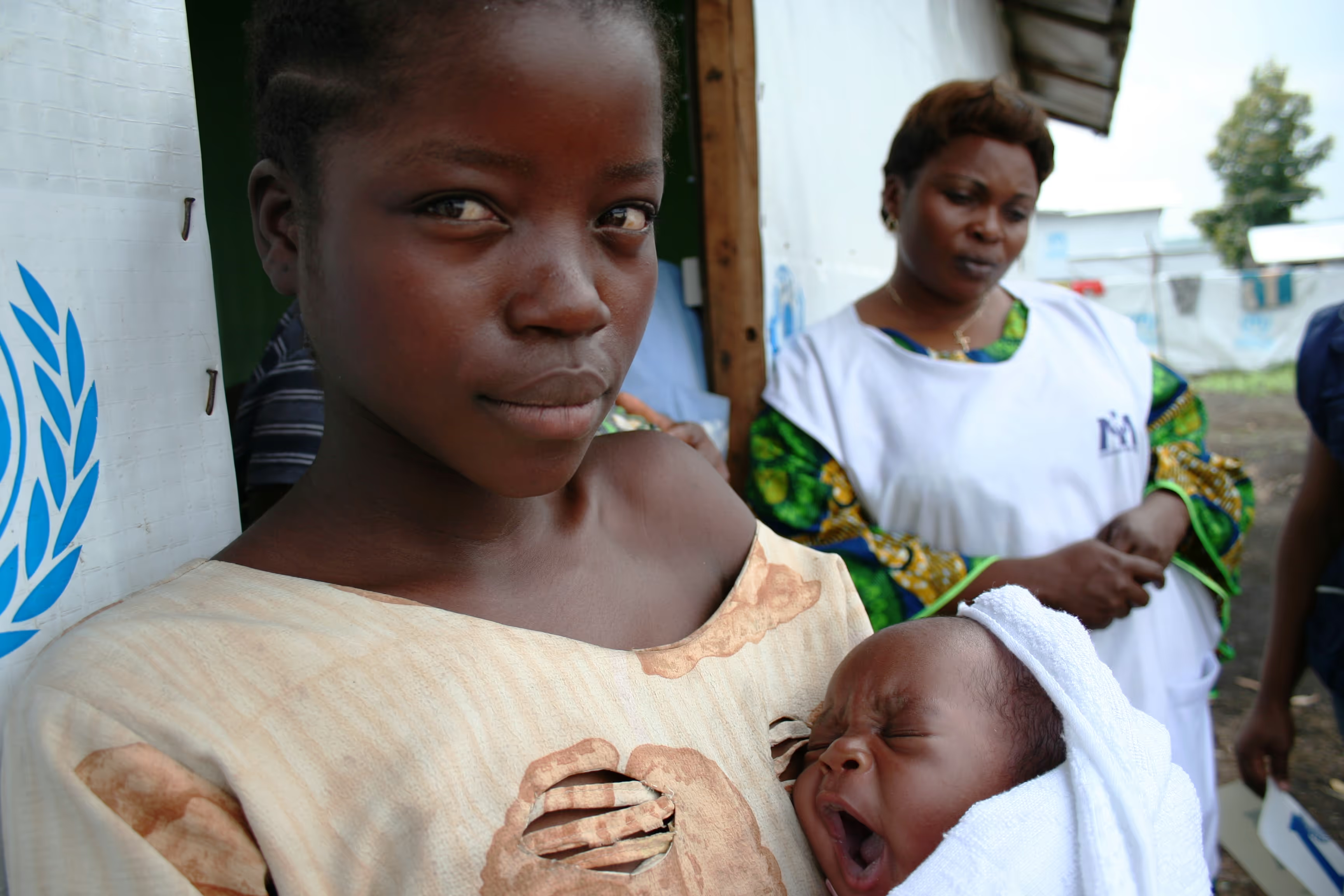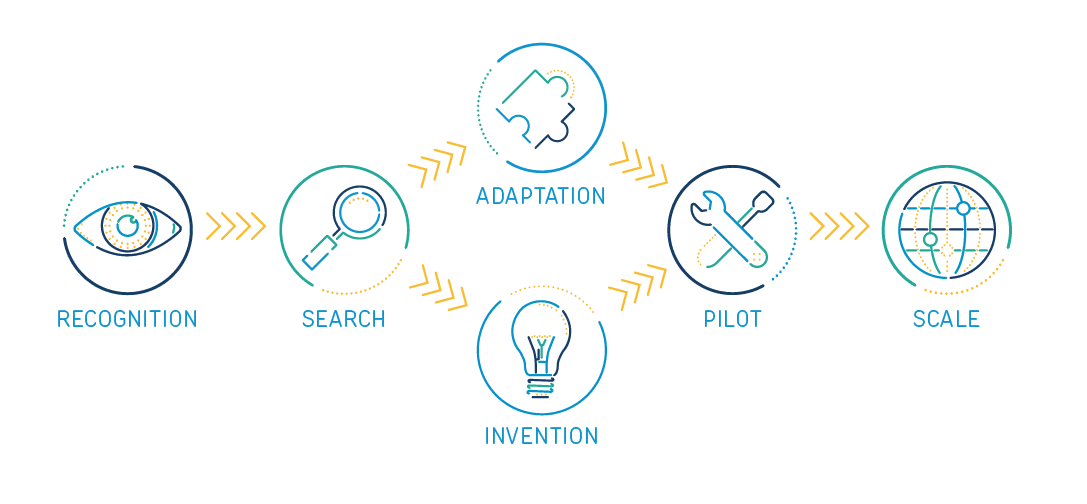Taking a local perspective on measuring the impact of GBV programmes in emergencies
This was our second GBV funding call, ‘Taking a local perspective on measuring the impact of GBV Programming’! Through this call, we were seeking to support up to five Consortia with grants of up to £50,000 each. Our aim is to generate new context-based perspectives and insights to inform and progress the global agenda on measuring the impact of GBV programming in emergencies.
Projects Funded Through This Call
Explore the projects that have received funding from this call. Each project showcases innovative solutions addressing [relevant field or focus area].
Please note that this opportunity has now closed. Find out about our current and previous funding opportunities.This was our second GBV funding call, ‘Taking a local perspective on measuring the impact of GBV Programming’. Through this call, we sought to support up to five Consortia with grants of up to £50,000 each, with the aim of generating new context-based perspectives and insights to inform and progress the global agenda on measuring the impact of GBV programming in emergencies. This Funding Call was directly supported by SIDA and the UK Department for International Development (DFID).
Our aim is to generate new context-based perspectives and insights to inform and progress the global agenda on measuring the impact of GBV programming in emergencies.
How
A fully developed understanding of the impact of GBV programmes requires both global and more local perspectives to be heard. Through this Call, and in line with our strategic approach, we will begin by exploring problem recognition and ideation at a more local and operational level
What
Successful grantees will seek to address is to reflect collectively on current impact measurement practices in their specific contexts and identify fresh lines of enquiry or approach.
Why
Although the scope and diversity of GBV programming in emergencies is steadily on the rise, the evaluation of GBV interventions mainly focuses on outputs, with little information about the quality or impact of these services.

THE PROBLEM
The scope and diversity of GBV programming in emergencies is steadily on the rise. However, the evaluation of GBV interventions mainly focuses on outputs, with little information about the quality or impact of these services. Evaluating impact is challenging; practitioners are constrained by time, funding, skills, and the sector lacks a clear overarching framework for measuring the impact of humanitarian response to GBV. Having better data on the impact of GBV interventions can provide a stronger evidence base for ‘what works’ within GBV programming and support replication of effective services at scale. While knowing whether a GBV programme was successful is valuable, the development of real-time evaluations is also needed to give programme coordinators the ability to adapt and improve their services while still active on the ground.
Despite increased efforts and improved understanding, creating a stronger evidence base remains a key priority for the global GBV community. Evidence is essential for effective humanitarian programming and achieving improved outcomes for crisis-affected populations. In a resource-poor sector like GBV, better evidence has the potential to unlock funding and act as a powerful advocacy tool.
THE APPROACH
TAKING A LOCAL PERSPECTIVE ON MEASURING THE IMPACT OF GBV PROGRAMMING
Building evidence on the impact of GBV programmes is a complex problem. A fully developed understanding requires both global and more local perspectives to be heard.
Core to Elrha’s commitments as a member of the GBV Call to Action is our ambition to make a significant contribution to this critical, persistent problem faced by the GBV community. Our strategic approach includes exploring problem recognition and ideation at a more local and operational level, and engages with those familiar with, and active in, these settings, for example through the Cluster system. See our HIF Strategy 2018-2020.
“The evidence base for programs to meet the needs of survivors would be strengthened if there were a standard approach to M&E that could be complemented and enhanced to meet the needs of specific contexts”. - Global Health Governance, Volume XII, No. 1 (Spring 2018)
THE CHALLENGE
To collectively review and analyse the practices used to measure the impact of GBV programmes in one specific humanitarian context and identify tangible opportunities for innovation.
Key Output: selected consortia will be expected to generate a Lessons Learned and Opportunities document, that will:
- Review and analyse ongoing Impact Measurement practices in one specific humanitarian context
- Set out the key challenges to measuring the impact of GBV programmes in that context
- Outline the key challenges to translating data into better programming
- Include the practices that are successfully measuring the impact of GBV programmes
- Identify up to 3 innovation opportunities for Impact Measurement of GBV within the context identified
- Present and document up to 3 innovation opportunities
- Present succinctly the suggested approach for exploring these opportunities
Where this Call fits in our Innovation Lifecycle
This Funding Call aims to support the critical first stage of our innovation lifecycle – Recognition.

Our definition: ‘Recognition of a specific problem or opportunity. This stage involves identifying a problem or opportunity to respond to, collecting and assessing readily available knowledge on the issue and context, diagnosing root causes and properly framing the challenge.’
Note, this is not a Call to test/pilot an innovation or innovative approach. We are looking for proposals that show a thorough exploration of this critical problem, to help build a baseline for existing GBV programming, and through this problem exploration identify opportunities for innovation that are contextually and culturally appropriate.
BACKGROUND
Our innovation Programme aims to improve outcomes for people affected by humanitarian crises by identifying, nurturing and sharing more effective, innovative and scalable solutions. The HIF started working with others to address the complex challenge of GBV in humanitarian settings in 2015, with initial funding from Sida, EU Humanitarian Aid, and UK Department for International Development (DFID) and guidance from our group of technical experts.
Our first step was to conduct and widely disseminate an Innovation Gap Analysis report which applied a unique innovation lens to the problems facing this sector. The report investigates approaches and efforts to best address the significant remaining challenges in GBV in emergencies. It offers fresh guidance on tangible areas for innovation for GBV practitioners globally to enhance their effectiveness and accelerate impact. It highlights four key Challenge areas faced by the GBV in emergencies community where innovation might provide solutions and forms a solid baseline for our work on GBV, guiding and informing our targeted innovation Challenges and grant funding.
Encouraged by our group of technical experts as well as through consultations with key external stakeholders, we have begun with the first Challenge area identified in this report: Measuring the impact of GBV programmes and developing real-time monitoring tools. We are currently supporting three promising early-stage innovation projects exploring various avenues to improve impact measurement in GBV.
The HIF GBV Gap Analysis report highlights the importance of working with local communities to ensure GBV services are accessible to all and developing context-specific roadmaps to help practitioners meet GBV Minimum Standards. A contextually sensitive approach is key to taking innovation to scale. Our Accelerating the Journey to Scale programme highlights the importance of designing solutions with affected populations for bigger impact and sustainability. It is important to ground problem recognition and ideation at a more local level, and engage with those familiar with, and active in, these settings, for example through the Cluster system. The HIF has a strong strategic focus on local and operational engagement for effective innovation and works collaboratively with country focused innovation partners such as the Response Innovation Lab, a DEPP Innovation labs, and regional network ADRRN.
nan
Resources produced
Lorem ipsum dolor sit amet, consectetur adipiscing elit. Suspendisse varius enim in eros elementum tristique.
Frequently Asked Questions
Lorem ipsum dolor sit amet, consectetur adipiscing elit. Suspendisse varius enim in eros elementum tristique.
This Funding Call is now closed, and we are no longer accepting applications.
A collaborative group of actors, new or pre-existing, highly experienced in GBV and already grounded in the chosen humanitarian context (E.g. INGOs’ in-country offices, national NGOs, NPOs, government representatives, communities, academia), the majority of which are situated and led locally.
We will only accept proposals that are looking at humanitarian response settings and GBV in emergencies, meeting the Global Humanitarian Assistance definition we use. Proposals need to clearly define the context being selected.
This Funding Call is now closed, and we are no longer accepting applications.
Other funding calls
Discover additional funding opportunities and what support could be available for your innovation project or research study.
R2HC Uptake and impact small grants
Elrha’s Research for Health in Humanitarian Crises programme aims to improve health outcomes for people affected by humanitarian crises by strengthening the evidence base for public health interventions. Since 2013, we have funded more than 100 research studies. We have identified a critical gap in funding for knowledge translation, communications and engagement activities required for research findings to be understood, used and applied by humanitarian stakeholders.
AI for Humanitarians: Shaping future innovation
Supporting a cohort of humanitarian practitioners to pioneer a problem-led approach and explore the opportunities and risks associated with Artificial Intelligence (AI), we invite practitioners to identify areas of future impact, ripe for further investigation and potential investment.
Funding Opportunity: GBV Tech Innovation Challenge
This Innovation Challenge looks to identify and support promising tech-based interventions relevant to GBV programming within humanitarian settings.